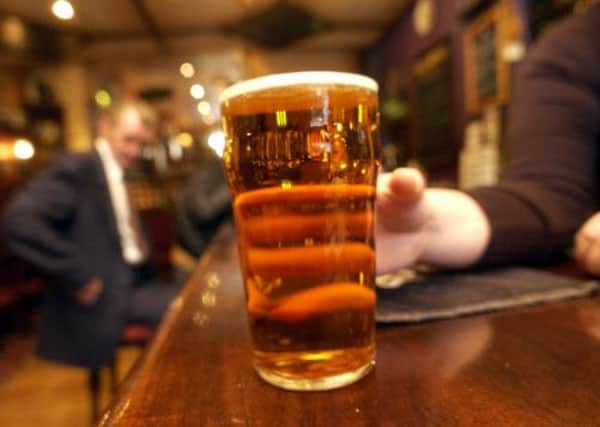Alcohol craving drug licensed for Scottish use


Today nalmefene was given the go-ahead by the Scottish Medicines Consortium, (SMC) which approves drugs for use in the NHS north of the border.
The drug, which comes in tablet form, is designed for people who are alcohol dependent, but not at the extreme end of the spectrum of substance abuse.
Advertisement
Hide AdAdvertisement
Hide AdHealth experts welcomed the decision which could help tackle the problem in Scotland which has one of the highest alcohol-related death rates in Europe.
The SMC said the drug should only be used alongside psychological support in order that any underlying psychological and behavioural issues are not overlooked.
The cost to the NHS for nalmefene £42.42 for a supply of 14 tablets. The maximum daily dose is one tablet - working out at just over £3 per day.
Nalmefene works by reducing the release of dopamine in the brain, lessening the “buzz” or reward sensation associated with alcohol.
George Best, the legendary Manchester United forward, who suffered from alcohol addiction underwent a controversial liver transplant followed by an implant which released a drug into his blood stream preventing the body breaking down alcohol properly, making him ill if alcohol was consumed.
The SMC said it could help some alcohol dependent people to more than halve the amount they consumed (up to 61 per cent).
In trials, men who usually consumed eight units of alcohol a day and women who drank six a day reduced their intake by half over a six-month period when taking nalmefene.
It is estimated there are around 189,000 alcohol dependent people in Scotland who are currently untreated with rates of alcohol use and abuse being higher than the rest of the UK.
Advertisement
Hide AdAdvertisement
Hide AdScotland has the highest alcohol-related death rate in the UK with the rates in Scottish men being double that of the rest of the UK.
Deaths from chronic liver disease and cirrhosis are also increasing at a faster rate in Scotland than in England and Wales
Professor Jonathan Chick, consultant psychiatrist and honorary professor, at Queen Margaret University Hospital Edinburgh, said: “I am pleased that Scottish patients will have access to nalmefene, which represents a new option for treating some people with alcohol dependence by helping them to cut down their drinking when they may not be ready, or have no medical need, to give up alcohol altogether.
“This may help us to engage the many alcohol dependent patients that we know are not currently receiving help.”
Professor Chick added: “The range of people who put themselves at risk through their drinking is quite wide. Some have not met social problems and are functioning well until they develop an alcohol-related physical illness such as high blood pressure, cancer or liver disease; while others lose their social supports and then tend to fit the stereotype of the ‘alcoholic’. Reducing alcohol consumption can prevent these social and physical damages developing, but the changes in the brain of the dependent drinker may make that difficult and help is needed.”
However Dr Evelyn Gillan, chief executive of Alcohol Focus Scotland, said that Scotland’s “drinking culture” was a hindrance to recovery and advocated that measures should be taken on pricing and advertising.
“Given the high number of harmful drinkers in Scotland, it is important that we have a range of evidence-based treatment options to help people reduce their drinking and reduce the negative impact of alcohol on their lives.
“Unfortunately, recovery from alcohol problems is made more difficult because of our ‘pro-alcohol’ environment – cheap alcohol is widely available and heavily promoted. Action on price, availability and marketing is the best way to protect people from alcohol harm.”
Advertisement
Hide AdAdvertisement
Hide AdIan Semmons, chairman of Action on Pain, welcoming the SMC’s decision, said: “We know that chronic pain leads some people to have major problems with alcohol.
“We also know that cutting down on unhealthy alcohol consumption is a vital step in reducing the risk of many serious, long-term illnesses including liver disease, cancer, high blood pressure, depression and cardiovascular disease.
“This is particularly important for Scotland where alcohol-related death rates are among the highest in Europe and have doubled in the last 15 years.”
Steve Turley, managing director at Lundbeck which manufactures the medicine, said: “We are delighted that the SMC has acknowledged the clinical and cost effectiveness of nalmefene in the management of alcohol dependence in Scotland.
“We sincerely hope that appropriate dependent patients will now be able to access this effective medicine to help them to reduce their alcohol consumption.”